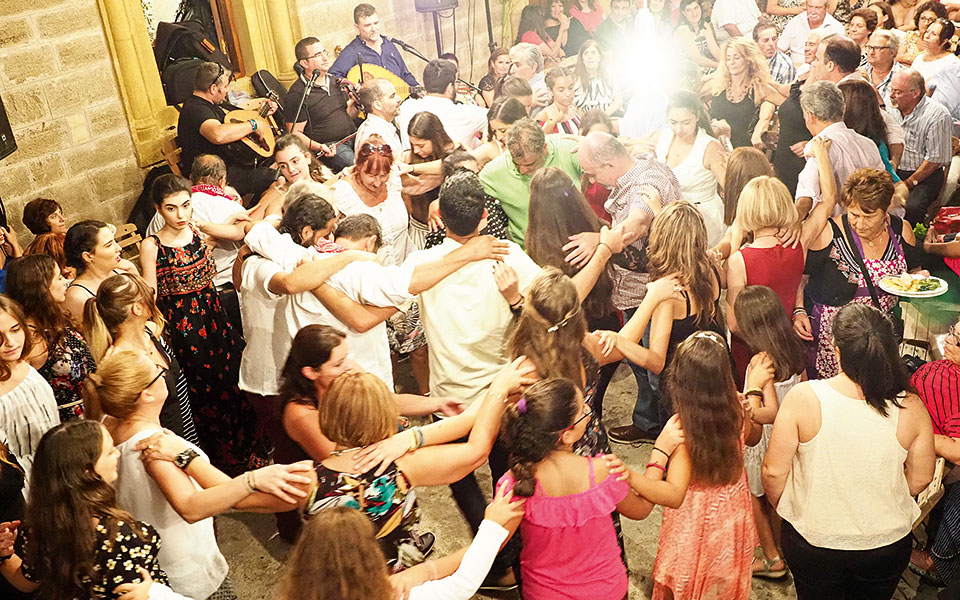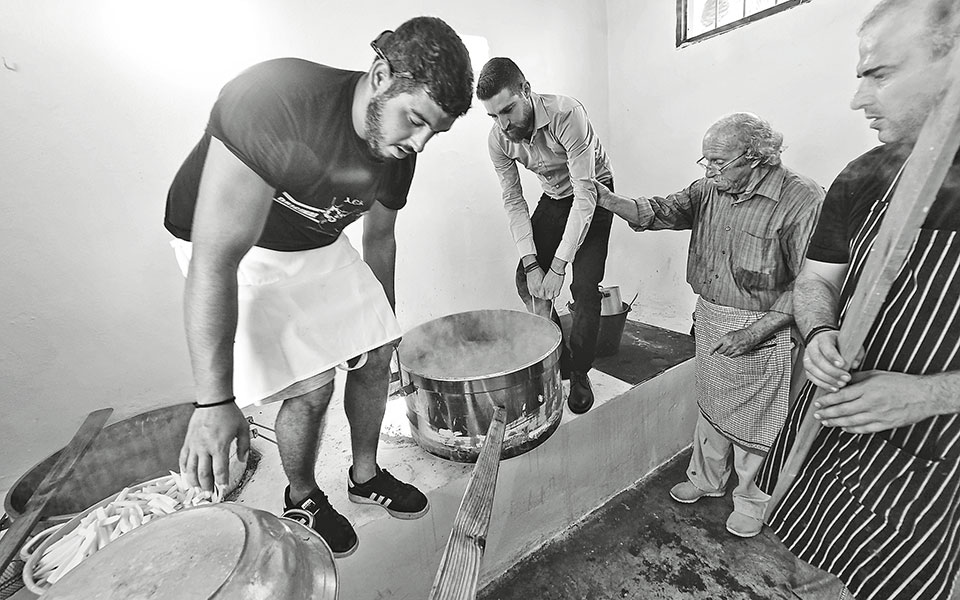
Where would I like to be today? It is beautifully described by the beloved friend of the column Kasiotis Nikos Mastropavlos, to whom I am grateful for the text: “The great feast of the Holy Cross, in the heart of a small homeland, at the end of a barren line, has always been special. And not only because he is the only one who does not sacrifice many carcasses for him, while the traditional dish of the feast is lenten, but, above all, because he is emotionally crossed in the Cassian mysteries of the Apocalypse. And because the Cassiots have a unique talent for accepting you into their company and integrating you into their lifestyle, the newcomer feels not like an outsider, but a longtime member of this enthusiastic community that he first met a few days ago. .

As the cycle of summer festivals draws to a close, many visitors leave, and those who remain – already initiated – delay their escape as much as possible until they receive a holiday gift of strong memories, a kind of farewell nod from their island. to have a walk abroad, but also to make promises to return. And when you have long been ready to manifest and share the bowels of your soul, then a liberating, refreshing and unrestrained emotional feast breaks out ahead of time in the kitchens where the Lenten feast is being prepared.

There is no holiday in Kasos without pilaf. Dozens of carcasses are sacrificed to make the broth for the famous cinnamon pilaf. But here they are offered to cook without meat, from lean raw materials, “haitia”, a dish that, although it is a “fake pilaf”, should resemble the usual one. From early morning, vegetable broth boils in a large cauldron over a natural fire until it softens and takes on rice. Giannis and Vasilakis stir it constantly as Michalis of Aga tastes it from time to time to improve its taste. In the meantime, he descends into the depths of the galleys to bring his impromptu mandinade to the preliminary feast, which is already – and it is – beginning to flare up.
The priest Stavros plays the lyre. He did this for decades in New York, where he lived as an alien until he returned to the port from which he started. In high spirits, he sings, “No one will defeat this lying liar.” Only a few moments when he feasts. After the omigiri of a small feast, pots of dolmada pass, which each housewife wraps in her kitchen. Of course, they are large and “gyalandzi”, and the famous kasio dolmadaki of the feast, tiny and with minced meat. Taramo salad, olives and classic fried potatoes complement the assortment of this feast.
Party before the party, but also party after the party. The next day, when all the festive preparations are over, Nectarios plays the lyre and sings: “My Bonentino, it is easy for you to go far. Go to a foreign country, blow for a while. The second day of the cross, and we are celebrating in the yard.
Source: Kathimerini
James Springer is a renowned author and opinion writer, known for his bold and thought-provoking articles on a wide range of topics. He currently works as a writer at 247 news reel, where he uses his unique voice and sharp wit to offer fresh perspectives on current events. His articles are widely read and shared and has earned him a reputation as a talented and insightful writer.